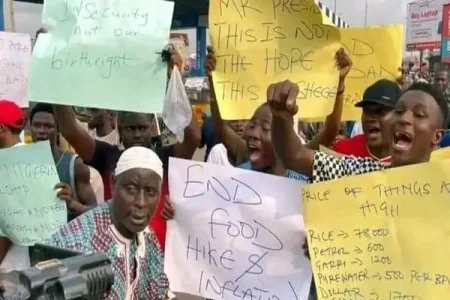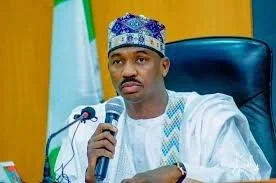
Nigerian workers' group AWC supports the August 1st nationwide protest against economic hardships, calling opponents "enemies of the people." They cite hunger, insecurity, and government failures as reasons. The protest is framed as a legitimate right and a potential turning point for national transformation.
As Nigeria grapples with economic hardships, a workers' group has ignited controversy by declaring that anyone opposing a planned nationwide protest is "an enemy of the people." The All Workers Convergence (AWC) has thrown its weight behind the August 1st demonstration, framing it as a necessary stand against hunger, insecurity, and perceived governmental failures.
In a bold statement, AWC National Coordinator Andrew Emelieze emphasized the legitimacy of protest as a fundamental right. The group argues that current conditions have pushed Nigerians to a breaking point, with many losing faith in the system and seeking opportunities abroad.
The AWC's stance highlights growing discontent with President Bola Ahmed Tinubu's administration, accusing it of exacerbating hardships and mismanaging national resources. They paint a stark contrast between the struggles of the majority and the perceived excesses of the ruling class.
This call for protest reflects deeper societal tensions, with the AWC portraying it as a "revolt against hunger" and a "rebellion against hardship." The group's rhetoric suggests a watershed moment in Nigerian civil discourse, framing the demonstration as a potential catalyst for genuine national transformation.
However, the AWC's confrontational tone, labeling protest opponents as "enemies," risks polarizing public opinion. This approach may alienate moderate voices and complicate efforts to address the underlying issues fueling discontent.
As August 1st approaches, Nigeria finds itself at a crossroads. The planned protest represents more than just a demonstration against current policies; it embodies a collective cry for systemic change. How the government responds to these grievances could significantly shape the country's political and social landscape in the coming months.




